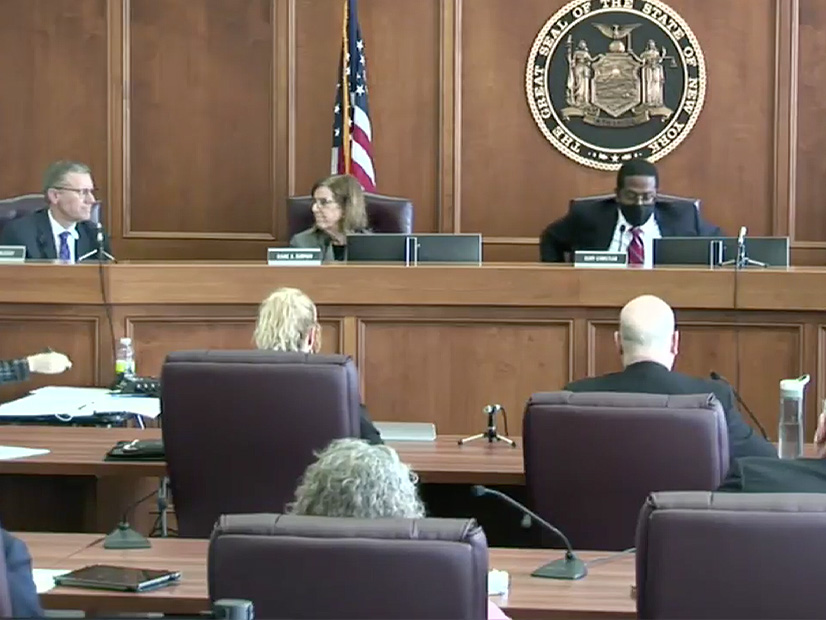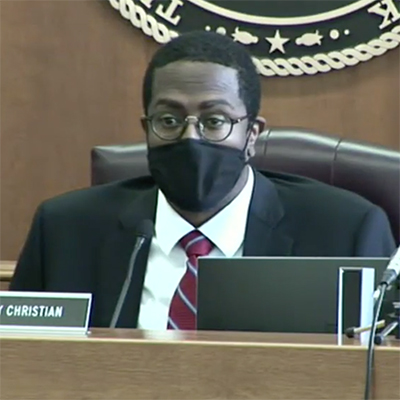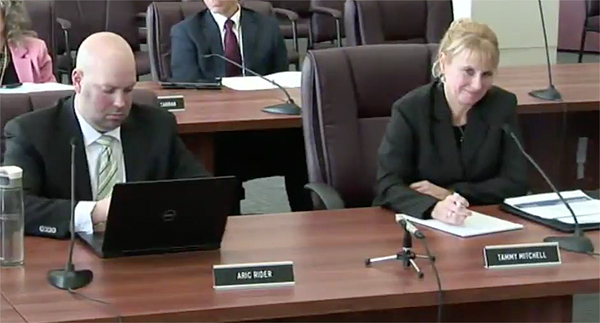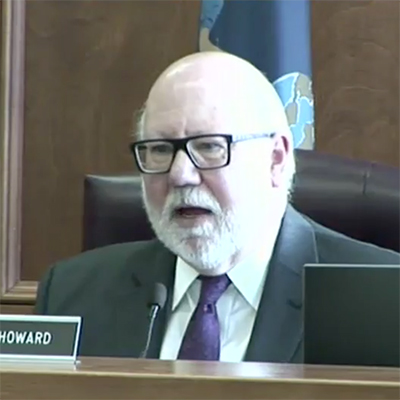
The New York Public Service Commission on Wednesday heard updates on how the state’s utilities are responding to the PSC chair’s pleas to improve billing practices and customer outreach in the light of this winter’s electric and gas bill surges on higher natural gas prices.
 NYPSC Chair Rory Christian | NYDPS
NYPSC Chair Rory Christian | NYDPS“It bears pointing out that the price spikes we’ve recently seen are not something limited just to New Yorkers. This is a global issue, a national issue, and it’s affecting everyone from Maine to California,” PSC Chair Rory Christian said. “Customers already struggling with a global pandemic are now faced with rising inflation, rising energy costs, and concerns that the war in Ukraine could have far greater impacts in the near term and long term.”
Christian said the PSC has instructed utilities to increase their outreach on the issue, adding that he’s “optimistic” about the results of outreach efforts.
Christian wrote to Consolidated Edison (NYSE: ED) on Feb. 11, directing the state’s largest utility to increase communications and improve its billing mechanisms to reduce dramatic changes in commodity prices from month to month, an issue that exacerbated price volatility for their customers, some of whom saw their monthly bills go up by as much as 67% this winter (Case No. 22-00346).
Revenue Strategies
The other major utilities — Con Ed subsidiary Orange and Rockland; National Grid; Avangrid subsidiaries NYSEG and RG&E; National Fuel; PSEG Long Island; and Central Hudson Gas and Electric — are reviewing their power purchasing to mitigate the risk of severe price volatility, retooling their consumer communications regarding anticipated bill increases, payment assistance plans and programs to reduce energy usage.
 Aric Rider and Tammy Mitchell, NYDPS | NYDPS
Aric Rider and Tammy Mitchell, NYDPS | NYDPSCon Edison filed an emergency tariff to fix its billing by the summer and said that its hedging practices include reconciling benefits in a future bill, which resulted in a bill credit for its customers beginning with Feb 11 bills and continuing through March 14, said Tammy Mitchell, director of the Department of Public Service’s Office of Electric, Gas and Water.
“While Con Edison customers experienced commodity price and bill volatility, the hedges that Con Edison entered into saved full-service mass market customers over $120 million this winter through the end of February compared to if they were simply subject to market prices,” Mitchell said.
Due to the increases, the supply portion of a Con Ed customer bill jumped from 24% of the total bill in January to about 45% of the total bill in February, she said.
Additional state directives on better outreach are not really the solution to price volatility, Commissioner Diane X. Burman said.
“We need to call out some other state officials who may not fully understand we can’t just say that we have to educate consumers,” Burman said. “I can tell you if I was a consumer who had my checking account or savings account getting an auto withdrawal, and I have overdraft, and then all of a sudden money was coming out that I didn’t expect, I would be devastated. … We have to do better as a commission in understanding that in real time and responding to that.”
Nearly 25% of a Con Ed customer’s bill goes to the city of New York as general revenue, said Commissioner John B. Howard. He said that no one at the state or city level is addressing the issue.
 NYPSC Commissioner John B. Howard | NYDPS
NYPSC Commissioner John B. Howard | NYDPS“The state of New York today and the city council could do things immediately to provide immediate rate relief to customers,” Howard said. “I believe they could even provide retroactive relief to customers if they take their own revenue requirements and deal with them appropriately.”
Addressing advocates for converting Con Ed to a publicly owned company, Howard said such a change would not alter the fact that $0.25 on every dollar it collects goes to taxes, not to providing service.
“It’s not just Con Ed, although it’s the most gross example across our state,” Howard said. “There are a variety of taxing jurisdictions — school districts, counties, cities — that put on extra taxes to their utility customers. They could take immediate action on their level to reduce bills.”
New Billing System Woes
The PSC also approved a third-party independent consulting company to audit the management and operations of Central Hudson’s electric and gas operations and grid modernization efforts (Case No. 21-M-0541).
For large electric and natural gas utilities such as Central Hudson, the law requires such audits at least once every five years.
In addition, state officials are reviewing the utility’s response to a February storm that left more than 67,000 homes and businesses without power, and are investigating billing problems related to the company’s recent upgrade to a new IT system that resulted in many customers not receiving timely monthly bills (Case No. 22-00497)
Poughkeepsie-based Central Hudson serves about 309,000 electric customers and 84,000 natural gas customers in the mid-Hudson region.
The utility tripled its complaint resolution staffing relative to normal operations, stated it has identified the problems within its new customer information system and is working with its implementation vendor and software engineers to resolve the problems by early next month, said Aric Rider, deputy director of the Office of Consumer Services.
“Central Hudson acknowledges that approximately 7% of its customers, or 21,000 customers, mostly customers that are specially billed, are still facing billing difficulties,” Rider said.


